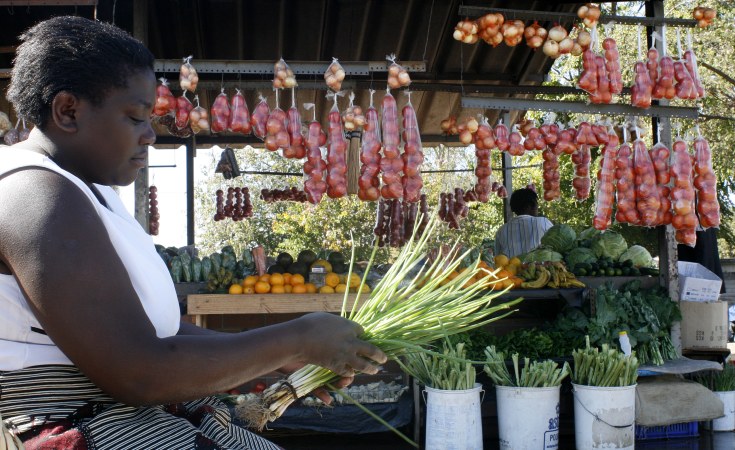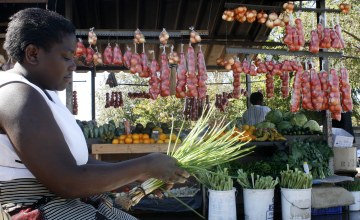The African Development Bank (AfDB) is a major developmental partner in Africa that uses information to quantify annual progress and target its policies. Its Africa Information Highway (AIH) initiative facilitates and disseminates information and statistics across the continent. Since its launch in March, 40 African countries are present on the open data network. Eight more will share their statistical databases before the end of the year.
"Statistics is a public good, it should be made available to the public. It will improve governance and transparency in terms of development," said Beejaye Kokil, Manager of the Economic and Social Statistics Division at AfDB. He was attending the 2013 African Economic Conference (AEC) on "Regional Integration in Africa", being held in Johannesburg, South Africa, from October 28-30.
The AfDB works with its partners - the International Monetary Fund (IMF), the World Bank, the United Nations Economic Commission for Africa (ECA) - to standardize the quality of data sets. UNESCO aligns the data provided by African Governments and sub-regional communities, such as the Southern African Development Community (SADC) and the Economic Community of West African States (ECOWAS), so that variables are comparable between countries.
The Africa Information Highway makes the information freely available and encourages debate between the produces and users of statistics. "This is the objective: African countries have a lot of information, but they don't disseminate it because they do not have the tools. While it [the Africa Information Highway] provides the tools and structure so that they don't have to develop them and can make them available to the public," he said.
Data needs to be easily understood so that citizens, the private sector, governmental departments and researchers use it effectively. Kokil encourages individuals to actively use the information to their country's and regional community's advantage.
"Beyond being a source of information, AIH will lead to more transparency. We will know what is happening on the continent. We [AfDB] want to become a hub for all developmental data in Africa," he continued.
National data dissemination policies need to be put in place across Africa. Poor Internet access and its high cost remains a challenge, however the AfDB supports various countries, such as Sierra Leone and The Gambia, with bandwidth costs and the establishment of servers.
"Governments cannot do everything because the resources are not there." The Africa Information Highway network is open to the public; researchers are encouraged to upload their information sets. He urges university students to create mobile applications that disseminate information. The platform simplifies the reporting of information for media personnel, who can revert to a credible source, he added.
"The challenge also lies in educating the public on how to use it. That is why we are presenting at conferences like this," he said of the 2013 AEC. "To show users that tools like this exist. There is still some advocacy work to do." The platform is interactive and updates are made based on the feedback received from users.
Kokil notes that communication is an important factor for productivity gains and GDP growth. The Transform Africa Summit, being held concurrently in Rwanda, on the launch of 4G LTE in the country is said to increase the country's GDP growth by between 10 to 13 percent.
"Communication is very important in terms of facilitating GDP growth. A farmer who produces goods must know the prices when he goes to sell the product. This is a huge development. And commodity markets are also facilitated with the use of information."
The communication sector is not merely a sector in itself, he explained, it also functions as a facilitator to improve and expand other sectors, which is why it is so vital to growth and regional integration.



